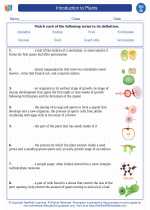Legumes: A High School Biology Guide
Legumes are a group of plants that belong to the family Fabaceae. They are known for their fruit, which is a pod that splits open along two seams. These plants have a unique ability to form a symbiotic relationship with nitrogen-fixing bacteria in their root nodules, which allows them to convert atmospheric nitrogen into a form that is usable by plants. This makes legumes an important part of many agricultural systems, as they can enrich the soil with nitrogen.
Characteristics of Legumes:
Examples of Legumes:
Some common examples of legumes include:
- Beans (such as kidney beans, soybeans, and chickpeas)
- Lentils
- Peas
- Alfalfa
- Clovers
Importance of Legumes:
Legumes have several important ecological and agricultural roles:
- They improve soil fertility by fixing nitrogen.
- They are an important source of protein in many diets.
- They can be used as cover crops to prevent soil erosion.
- They are a key component of crop rotation systems.
Study Tips for Understanding Legumes:
When studying legumes, it is important to understand their unique characteristics and their role in agriculture and ecology. Here are some tips to help you grasp the concept:
- Learn the distinguishing features of legumes, such as their pod-bearing fruit and nitrogen-fixing ability.
- Explore the ecological and agricultural importance of legumes in soil fertility, crop rotation, and as a source of protein.
- Study specific examples of legumes and their uses in different cultures and cuisines.
- Understand the process of nitrogen fixation and its significance in the context of legumes.
Overall, legumes play a crucial role in agriculture and ecology, and understanding their characteristics and importance can provide valuable insight into sustainable farming practices and the global food supply.
.◂Biology Worksheets and Study Guides High School. Introduction to plants
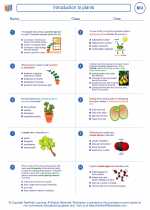
 Worksheet/Answer key
Worksheet/Answer key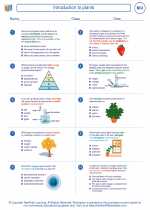
 Worksheet/Answer key
Worksheet/Answer key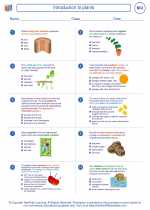
 Vocabulary/Answer key
Vocabulary/Answer key
 Vocabulary/Answer key
Vocabulary/Answer key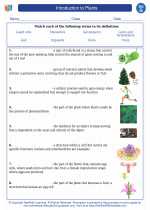
 Vocabulary/Answer key
Vocabulary/Answer key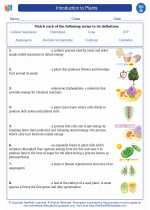
 Vocabulary/Answer key
Vocabulary/Answer key
 Vocabulary/Answer key
Vocabulary/Answer key